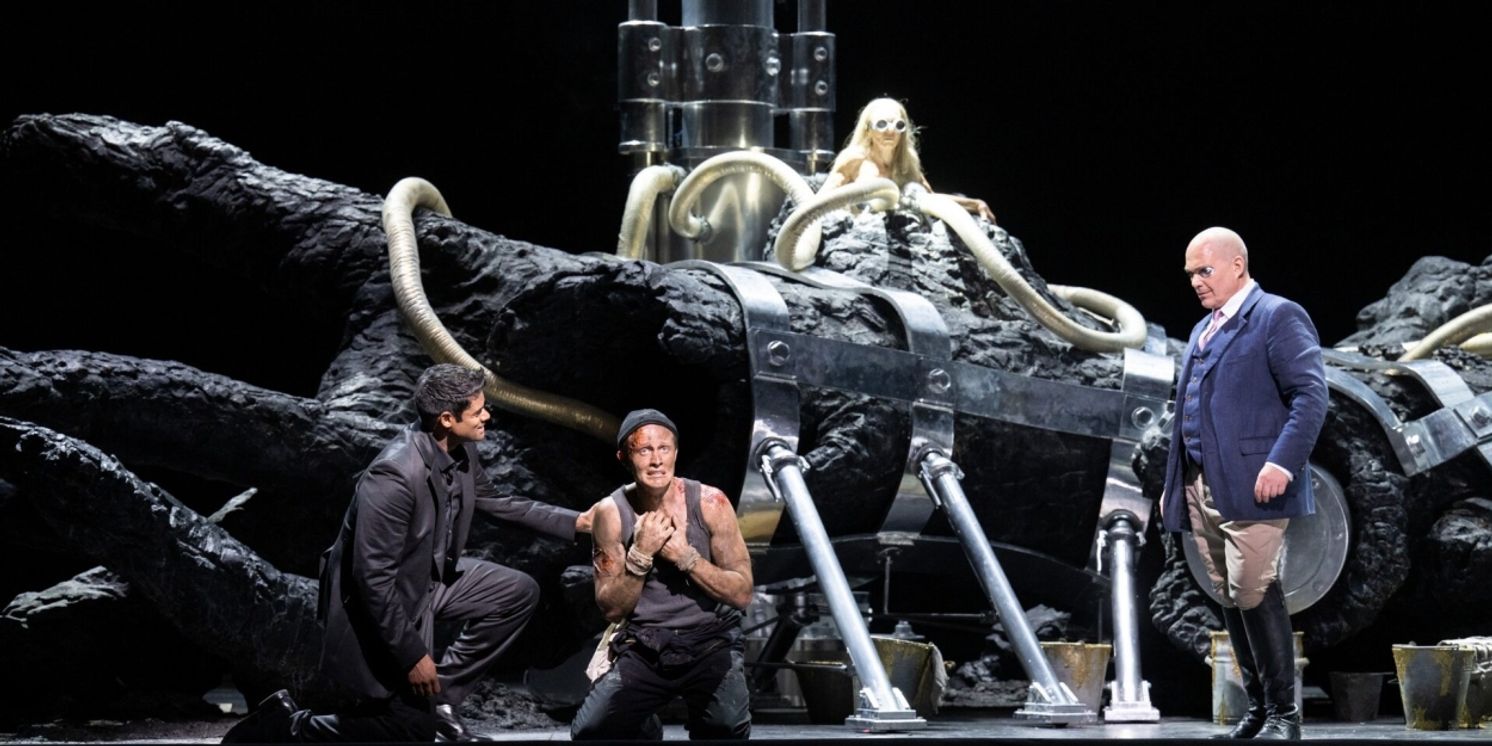Review: DAS RHEINGOLD, Royal Opera House
Terrible beauty throbs at the heart of Barrie Kosky's new production


Given his political radicalism and fervent romanticism, it is more than fair to wonder if Richard Wagner would be partial to Just Stop Oil. Sporting his iconic beret, would he, if he were around today, brandish banners and block cars on the M1? Barrie Kosky may think so. He thrusts Wagner’s ecological consciousness front and centre of his new production of Das Rheingold.
Needless to say any Ring Cycle is a big deal. Opera doesn’t get much larger in scale than Wagner’s legendary four-part opera about warring gods, majestical monsters, and everything in between. Das Rheingold, the first part of the tetralogy clocks in at two and a half hours; infamously with no interval.
Internationally acclaimed, Kosky seems to have the Midas touch with countless awards under his name. His most recent endeavour Dialogues des Carmélites at Glyndebourne was the must-see production of the Summer. But does everything he touch turn to Rheingold?
In short, yes. Every note of the Royal Opera House’s new production throbs with terrible beauty. A fallen tree, ash coloured and wrinkled as if brutalised by a forest fire, lies on stage like the skeletal corpse of a giant throughout. The Rheingold itself, fought over by the gods and champagne swilling aristocrats, is a viscous sap that oozes from the fallen tree’s crevasses.
Visually arresting and conceptually rich, the ring forged from the gold becomes a heartrending metaphor for an environment ravaged by human greed. He who wields the ring gains its power at the cost of relinquishing love. We pollute the Earth, gain power at the cost of abandoning our future. In the opera’s final moments the Rheinmaidens, clad in funeral black, scold Wotan’s hubris for ignoring their pleas to return their stolen gold. They scold us too; we are all culpable.
And yet the music feels as ambrosia-like as ever under Anthony Pappano’s baton. The honey-like hum of the Rhine ebbing and flowing in the opening bars, the magisterial momentum of "Entry of the Gods into Valhalla". A powerful chasm rips open between what we hear and what we see. Power and destruction sit unsettlingly hand in hand.
Vocal performances from the ensemble cast equally teeter on the precipice between gorgeous and haunting: Christopher Maltman’s imperious Wotan commands the space with ease, but a growing tinge of despair soon permeates. Sean Panikkar’s gorgeously nimble Loge on the other hand laughs it off nihilistically in the face of the chaos.
Erda, here a silent role (with a brief interjection from an offstage Wiebke Lehmkuhl) conjures the most poignance. Naked and frail, she is Mother Nature, omnipotently marauding around each scene watching as gods quibble over the gold whilst the world decays around them.
The question becomes not so much about preventing climate change but adapting to survive it. What happens to those who cannot escape to their own Valhalla?
Das Rheingold plays at the Royal Opera House until 29 September
Photo Credit: Monika Rittershaus
Reader Reviews
Videos

